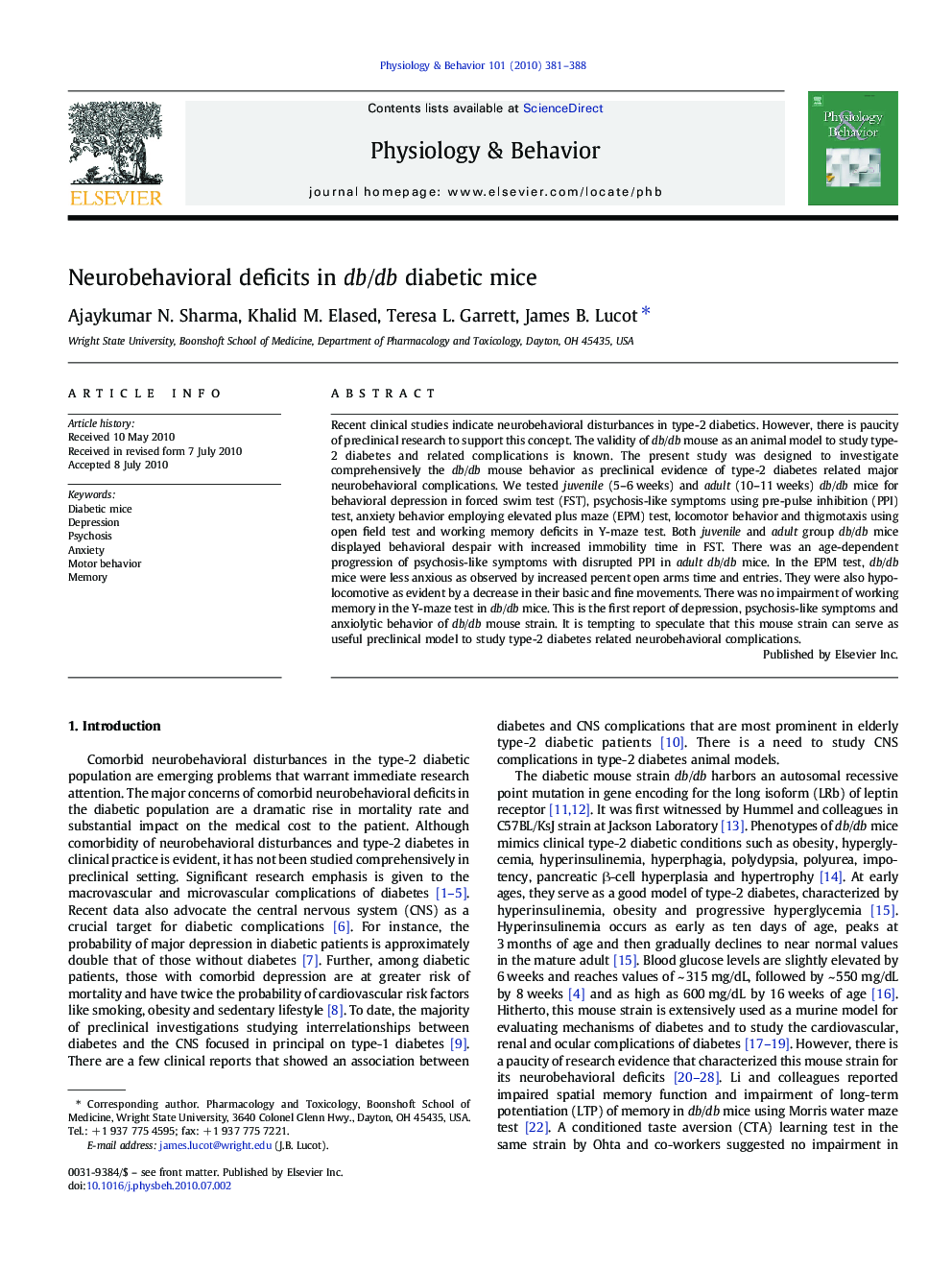| Article ID | Journal | Published Year | Pages | File Type |
|---|---|---|---|---|
| 2844609 | Physiology & Behavior | 2010 | 8 Pages |
Recent clinical studies indicate neurobehavioral disturbances in type-2 diabetics. However, there is paucity of preclinical research to support this concept. The validity of db/db mouse as an animal model to study type-2 diabetes and related complications is known. The present study was designed to investigate comprehensively the db/db mouse behavior as preclinical evidence of type-2 diabetes related major neurobehavioral complications. We tested juvenile (5–6 weeks) and adult (10–11 weeks) db/db mice for behavioral depression in forced swim test (FST), psychosis-like symptoms using pre-pulse inhibition (PPI) test, anxiety behavior employing elevated plus maze (EPM) test, locomotor behavior and thigmotaxis using open field test and working memory deficits in Y-maze test. Both juvenile and adult group db/db mice displayed behavioral despair with increased immobility time in FST. There was an age-dependent progression of psychosis-like symptoms with disrupted PPI in adult db/db mice. In the EPM test, db/db mice were less anxious as observed by increased percent open arms time and entries. They were also hypo-locomotive as evident by a decrease in their basic and fine movements. There was no impairment of working memory in the Y-maze test in db/db mice. This is the first report of depression, psychosis-like symptoms and anxiolytic behavior of db/db mouse strain. It is tempting to speculate that this mouse strain can serve as useful preclinical model to study type-2 diabetes related neurobehavioral complications.
Research Highlights►This is the first report of behavioral depression in db/db mouse strain. ►We also report for the first time age-dependent advancement of psychosis-like symptoms in db/db mice. ►db/db mice were less anxious compared to age-matched lean control mice. ►Working memory performance of db/db mice was not different from lean control mice. ►We speculate that db/db mouse strain can serve as useful preclinical model to study type-2 diabetes related neurobehavioral complications.
